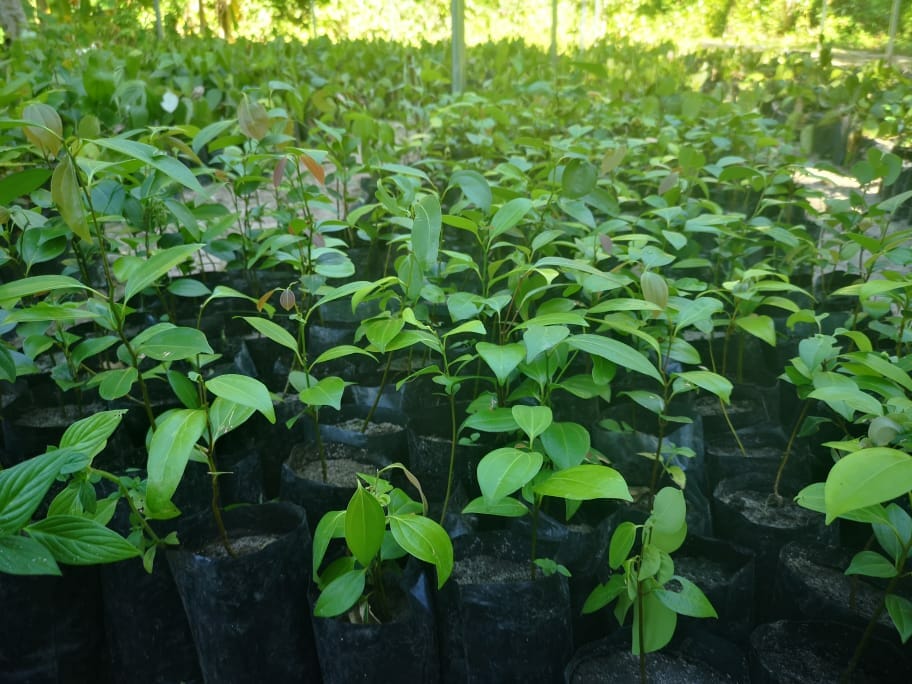Subscribe To Your Favourite Forests
Stories from the Wabanaki forest of the Maritimes, the Spice Forests of Zanzibar, and the mangrove forests of Mozambique.
Sign Me UpStories from the Wabanaki forest of the Maritimes, the Spice Forests of Zanzibar, and the mangrove forests of Mozambique.
Sign Me UpThe Coastal Forest of Eastern Africa is rated first worldwide for ecological diversity and 8th most endangered. 40% of this forest type is found in the coastal regions of Zanzibar. We’ve worked with Community Forests Pemba and local community leaders to establish community-owned and operated tree nurseries that grow over 30 different species of trees for ecosystem restoration, food production and income generation.
To date, we’ve helped establish 25 community-owned and operated tree nurseries. These nurseries have helped plant over 3 million trees across the Zanzibar islands! Each year, tens of thousands of new tree seedlings are grown to be planted in late-March and April — during what is known as the Masika planting season.
In any given nursery, the seedlings grown can include agroforestry spices such as cloves, black pepper, cardamom, and cinnamon; fruit trees like jackfruit, rambutan, soursop, and papaya; or ecosystem restoration trees including species like casuarina and mangrove. In each nursery, the seedling species are determined by both environmental factors and local community needs.
For example, Uwandani Community Nursery grows primarily casuarina and eucalyptus because these trees can survive in and help restore the area’s dry, shallow soils.

Gando Community Nursery (pictured here) is growing cardamom, cinnamon, cloves and other agroforestry seedlings for future Spice Forests.
As part of the multi-year VIUNGO Project, Community Forests Pemba is working hard to establish an additional 250 tree and crop nurseries. These new nurseries will benefit thousands of small-scale farmers across the Zanzibar islands. and help to grow climate resilient farming ecosystems and livelihoods.

Planting trees is only the first step, though! Tree planting only works if it also works for the communities in which projects are based. That’s why we plant forests that serve a variety of community needs, including food production and income generation. The ownership of land on which a new forest grows is also fundamental to the success of any tree planting investment, and if the status of the land is not secure, the future of the forest will always be uncertain. To ensure that new forests are protected from intense harvesting, we facilitate community conservation agreements with local governments.
Notifications